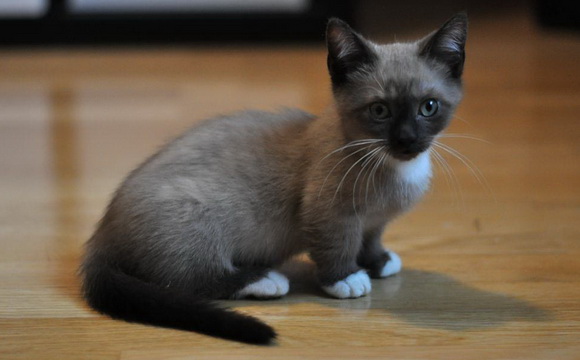Introduction
Millions of cats are kept as pets globally, most of which are non-pedigree, or mixed-breed cats. These cats, often called moggies or domestic shorthairs/longhairs, come in various coat colors and patterns. In contrast, pedigree cats are bred to exhibit specific physical characteristics and sometimes particular behaviors.
Understanding Pedigree Cats
Pedigree cats are selectively bred to enhance certain traits. These traits can be physical (such as short legs or a specific coat color) or behavioral (like the talkativeness of Siamese cats). There are four main methods breeders use to create pedigree cats:
- Developing naturally occurring groups of cats into breeds.
- Breeding cats with genetic abnormalities (e.g., short legs, folded ears).
- Mixing different breeds to form new breeds.
- Crossbreeding domestic cats with other species to create hybrids.
Importance of Good Breeding
Reputable breeders prioritize the health and temperament of their cats. They work to avoid inherited disorders and aim to breed healthy, friendly cats. It’s crucial for potential cat owners to choose breeders carefully to ensure they get a healthy pet.
Personality and Care Needs
While breed lists often highlight distinct personalities, individual cat behavior is influenced by genetics and early life experiences. For instance, Siamese cats are known for their vocal nature. Some breeds, such as the Persian, require extensive grooming due to their long coats, while hairless breeds like the Sphynx need regular baths and protection from sunburn.
Health Considerations
Pedigree cats can have health issues due to a limited gene pool. It’s important to be aware of potential inherited disorders within a breed. For example, some breeds are prone to specific health problems that can affect their quality of life.
Choosing the Right Cat
If you decide to get a pedigree cat, do thorough research. Ask breeders about health screenings and the lineage of their cats. Ensure the breed’s characteristics and care requirements fit your lifestyle. Prioritizing health and welfare is key to a rewarding relationship with your pet.
The Ethics of Breeding
Breeding should not compromise the health or welfare of the cat. It’s essential to avoid perpetuating genetic defects or breeding for extreme physical traits that can cause health problems. Ethical breeding practices are crucial to maintaining the well-being of cats.
The Role of Hybrid Breeds
Hybrid breeds, such as the Savannah (a cross between a domestic cat and a Serval), can pose challenges regarding temperament, behavior, and health. The welfare of both domestic and wild cats used in breeding hybrids should be a major consideration.
Conclusion
Whether you choose a pedigree or non-pedigree cat, the health and happiness of your pet should come first. Pedigree cats can offer unique looks and personalities, but they also come with specific care needs and potential health concerns. By choosing responsibly and prioritizing the welfare of the cat, you can enjoy a fulfilling companionship with your feline friend.
Tips for Prospective Pedigree Cat Owners
- Research Thoroughly: Understand the breed’s characteristics, care requirements, and potential health issues.
- Choose Ethical Breeders: Look for breeders who prioritize health and temperament over appearance.
- Consider Health Screenings: Ensure the breeder conducts health screenings to avoid inherited disorders.
- Evaluate Lifestyle Compatibility: Make sure the breed’s needs match your lifestyle and living situation.
- Prepare for Lifelong Commitment: Owning a cat is a long-term responsibility that requires time, effort, and financial resources.
By following these tips, you can make an informed decision and enjoy a healthy, happy relationship with your pedigree cat.
Frequently Asked Questions
Q: What is the difference between a pedigree cat and a moggie? A: Pedigree cats are selectively bred for specific traits, while moggies are mixed-breed cats with no particular lineage.
Q: Are pedigree cats healthier than moggies? A: Not necessarily. Pedigree cats can have inherited disorders due to a limited gene pool. Moggies tend to have fewer genetic health issues.
Q: How do I choose a reputable breeder? A: Look for breeders who conduct health screenings, prioritize cat welfare, and have a good reputation within the cat breeding community.
Q: Do pedigree cats require special care? A: Some breeds do, especially those with long coats or genetic traits that need regular maintenance, like the Sphynx or Persian.
Q: Can hybrid breeds be kept as pets? A: While they can be kept as pets, hybrid breeds may have unpredictable temperaments and special care needs. Consider these factors before getting a hybrid cat.
By being well-informed and responsible, you can enjoy the unique companionship that pedigree cats offer while ensuring their health and happiness.

